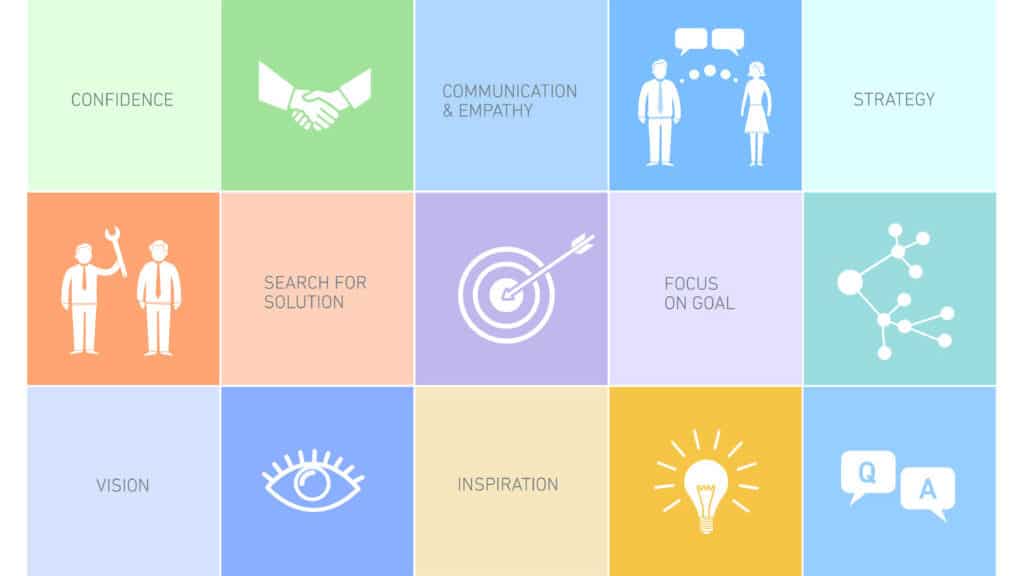The Untold Truth About Communications Degrees – Surprising Career Opportunities Await!
Some college degrees are easier than others.
It’s not uncommon for students who go for not-so-difficult degrees to exude an image of being lazy persons terrified of challenges — an easy academic program lets them in and out of college without trouble.
One of those easy degrees is communications.
But don’t be too quick to judge it!
A degree in communications is valuable for individuals who are eyeing careers that allow them to share information through various avenues and methods.
It’s a versatile qualification that paves the way for different careers across various industries.
Students interested in utilizing various media channels to communicate and passionate about storytelling and public relations can benefit from working on a communications degree.
Many assume that a degree in communications is worthless because it’s easy.
Likewise, a comm degree doesn’t pave the way for more specialized professions, such as engineering, software development, and nursing, which makes it easy for some to think that it’s for students with no particular career path in mind.

Is Communications Easy-Peasy?
Checking out one ranking of most difficult college degrees after the other will tell you that a communications degree is not something to fear by college-bound teens daunted by four closely related areas of discipline.
They are science, technology, engineering, and mathematics (STEM).
Easily, STEM-related degrees are at the top of the list of the hardest things to study in college.
On the other hand, it’s not uncommon for rankings of the easiest college degrees to mention communications — it’s usually not the easiest, but the mere mention of it tells that it’s no STEM.
Communications Students Get More Z’s Than Others
The Tab once ranked the most sleep-deprived college students in America.
It ranked 50+ academic majors, from those that keep students from having enough sleep every night to those that allow students to enjoy a decent amount of time in dreamland.
Architecture, nursing, and biochemistry majors are some of the most wearied students — architecture majors get an average of 5.28 hours of sleep per night, while nursing and biochem majors both get 5.69.
Communications majors are in the middle of the pack.
According to the survey, on average, they get 6.50 hours of sleep nightly, getting slightly more shut-eye than English language and literature (6.47 hours) and sociology (6.41) majors.
GPA: Comm Students Seem to be A-OK
Based on the average GPA alone, Research.com agrees that communications majors are some of the easiest.
Their average GPA?
3.3.
As a general rule of thumb, the harder the academic major, the lower the average GPA of students, which means that STEM majors should have some of the lowest average GPAs.
True enough, Research.com says that students majoring in those typically have low GPAs.
The following are some of those with the lowest ones:
| Major | Average GPA |
|---|---|
| Chemistry | 2.77 |
| Environmental economics | 2.95 |
| Environmental earth science | 2.96 |
| Computer science | 3.00 |
| Nuclear engineering | 3.14 |
| Energy engineering | 3.15 |
| Astrophysics | 3.29 |
| Marine science | 3.35 |
You would think that STEM students have some of the highest GPAs on the higher education landscape for they are some of the brightest on any college campus.
However, surveys reveal the complete opposite.
But it doesn’t mean a communications degree is the key to a good-looking transcript — although getting a good GPA is easier, comms students should still work hard like everybody else to get passing grades.

Then Who Should Go for It?
College-bound high schoolers who want a college degree that’s trouble-free to complete — any easy college degree — may consider putting communications at the top of their list.
However, they may not be happy and satisfied with the experience.
They may even realize it isn’t suited for their intended career path at any given time during their college career.
Enrolling in a communications program is an excellent idea only if you’re interested in it, and it will provide you with the knowledge and skills necessary for preparing for a career in your intended industry.
Here are ten telltale signs communications may be perfect for you:
- You’re an outgoing person
- Meeting and connecting with people are a passion of yours
- Writing is one of your strongest suits
- You love sharing your ideas with the world
- You’re a good team player
- Collaborating with others brings out the best in you
- Your hobbies are on the creative side of things
- You love devouring all kinds of content
- Technology doesn’t intimidate you
- Social media is a crucial part of your daily life
Of course, it’s vital that you explore other options, too.
Many college programs and majors also suit individuals who could benefit the most from being comm students — ensure that you check out as many of them as possible and weigh the pros and cons of each.
Lucrative Careers in Communications
Many frown upon a communications degree as it doesn’t zero in on a particular career path.
So, in other words, it’s a broad academic degree.
However, it’s precisely what gives comm students an edge in the job market!
With many career possibilities available, undergraduates can explore their options through electives and extracurricular participation until they decide on a career path that suits them the best.

Communications Degree: What Can You Do With It?
By now, we have established the fact that a communications degree is an easy one.
However, what’s great about it is that it allows you to easily penetrate a variety of careers across numerous industries, thus making the degree whatever you want to make it after earning your college diploma.
Do you want to write for a major newspaper?
Or do you prefer to appear on TV delivering news or sports commenting?
How about capturing current events in photographs?
Maybe a sales rep for a top company?
Does keeping a famous person’s image positive sound tempting?
Getting a degree in communications is what you need if you are interested in a career that allows you to spread information, interact with people, or make a product or person shine.
Here are the highest-paying jobs for communications degree holders:
| Job Title | Average Annual Salary |
|---|---|
| VP of Sales | $142,663 |
| VP of Marketing | $140,967 |
| Senior Copywriter | $85,424 |
| Development Director | $80,873 |
| Internal Communications Exec | $76,577 |
| Senior Editor | $73,933 |
| Senior Communications Specialist | $71,984 |
| Sales Representative | $69,837 |
| Proposal Writer | $68,240 |
| Communications Manager | $68,185 |
| Account Exec | $68,055 |
| Communications Consultant | $67,588 |
| Director of Public Relations | $66,519 |
| Brand Manager | $65,601 |
| Journalist | $62,231 |
| Social Media Manager | $59,643 |
Top Majors for Comm Students
Given that you can do many things with a communications degree, consider choosing a major that allows you to have a more specific career goal while enabling you to obtain additional hard and soft skills.
As a comm undergraduate, you will learn about the theory and practice of communication.
Picking a major that complements the degree while allowing you to pursue your interests and nurture your abilities helps you concentrate on a particular area of communication you love.
Below are the most popular majors for students in a communications degree program:
- Advertising
- Broadcasting
- Business
- Digital media communication
- English
- Journalism
- Marketing
- Mass media
- Photography
Disclaimer: The views and opinions expressed in this article are those of the authors and do not necessarily represent those of the College Reality Check.





